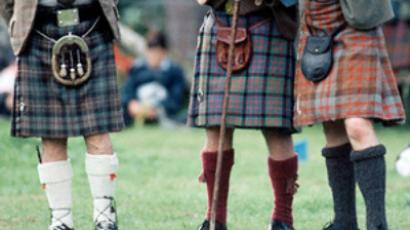Aussie icon finds new home in Britain
Wallabies – a smaller cousin of the kangaroo, a cross between a giant mouse and a rabbit and also the emblem of the Australian Rugby team – settle easily in the English countryside.
They also help maintain it, eating grass and brambles to keep the place neat and tidy.
The British are classed as animal lovers, but there's always room for one more pet. However man’s latest best friend is rather different – and is in great demand as a novel way to keep English gardens and lawns trim.
If you need an animal to keep the garden in shape, wallabies are quieter, cleverer and cleaner than sheep, and a massive hit with children.
That’s the reason why their popularity in Britain is growing in leaps and bounds, with farmers, small-land owners, and even ordinary families jumping on the wallaby band-wagon.
“I think it would be very novel. If you’re a pet person and you like animals, I think it’s just a different way of keeping a goat, or sheep, or chicken,” wallaby keeper Laura Cole says.
Quintin Spratt breeds wallabies to sell, and says they aren’t remotely shy about adding to their numbers so far from their native home. What’s more, the economic downturn hasn’t affected the business at all – he’s just had his best ever three months.
This looks like the ultimate credit-crunch busting business. All of the baby-wallabies have already been sold. And getting one could save you a fortune on a lawnmower.
But wallabies aren’t house pets – they must be kept outside, in a large area surrounded by a 2 metre fence. This helps keep them in and predators out.
“We do vet the people quite carefully because we want to make sure first of all they’ve got enough room. We don’t sell single animals because they’re group animals so they need to be in pairs at least, and we make sure they’ve got the facilities and the know-how to keep them,” Spratt says.













